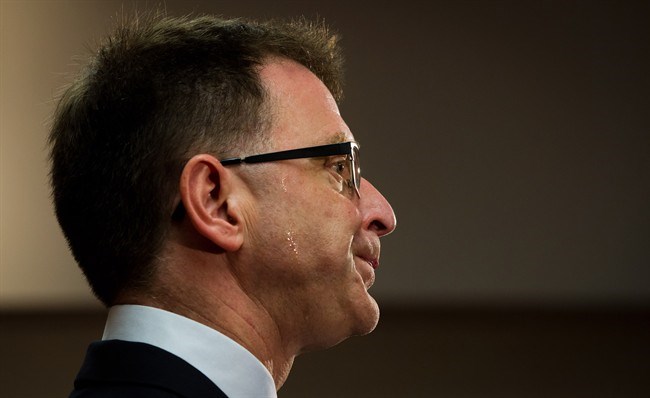B.C. NDP Leader Adrian Dix says he’ll stay in his job “over the next few months” to oversee a review into his party’s devastating election loss and the NDP’s future.
Dix addressed the media today for the first time since the May 14 provincial election, calling his party’s defeat to the Liberals “an impossibly disappointing result.”
“As leader of the B.C. NDP I take full responsibility for this defeat,” he said. “Clearly our campaign was not good enough. We did not do a good job prosecuting the case against the government based on their record and we did not make a clear enough case to British Columbians about what the consequences would be of re-electing the Liberals.”
Dix did not address his long-term future as party leader, but said he’d stay on in the short term, “over the next few months,” to assure an effective Opposition during the fall legislative session. He also said it’s not unprecedented for leaders to lose one election before winning the next.
“We will undertake a comprehensive review of this election to learn and act on the painful lesson that it’s taught us,” he said. “I can assure you this review will spare nothing and no one, least of all me.”
Dix did not blame his focus on running a so-called positive campaign, but did echo the concerns of some MLAs that he didn’t do a good enough job holding the Liberals to account on their record and defining that party’s flaws before proposing his solutions.
He said the NDP’s detailed platform “didn’t resonate with enough voters.” He admitted his abrupt mid-campaign opposition to twinning the Kinder Morgan pipeline, which surprised many in his own party, “hurt our campaign” and “plainly, I didn’t handle the issue very well.”
“On all these points, and others, I take full responsibility, no ifs, ands or buts.”
The review of the NDP’s electoral defeat needs to be comprehensive and involve people outside the party who can “take an unflinching look at our strengths and weaknesses” and the party’s relationship with British Columbians, he said.
“I will do whatever is required to see that this happens,” he said. “I will be guided by the discussion and direction given. I’ll put the public interest and long-term success of the B.C. NDP ahead of any personal ambitions.”
Dix said he is a “servant” of his party’s caucus and membership. He faces a mandatory leadership review later in the fall.
Today’s press conference in Vancouver was the first time Dix has spoken to the media since his party’s stunning loss May 14 in the provincial election.
Though the NDP was perceived to be widely ahead in public opinion, New Democrat support failed to materialize on voting day and the party lost three seats in the house to the resurgent B.C. Liberals, who picked up five seats.
NDP president Moe Sihota has said the party “fell on the sword of complacency,” and several re-elected MLAs say the party’s focus on positive campaigning didn’t allow enough opportunity to attack the Liberal party’s record.
The Liberals, meanwhile, credit a campaign focused on the economy and getting supporters to the polls.
It’s unknown exactly when the legislature will resume sitting, though it would have to be before the government’s interim spending authority expires at the end of September. Premier Christy Clark, who lost her seat in Vancouver-Point Grey, has said she wants to win a byelection before resuming the house.
Dix said he was “highly suspicious” of polls that put his party as much as 20 percentage points ahead of the Liberals.
He said his focus on avoiding personal attacks against Clark was an attempt to increase the number of voters, which did not work. Preliminary voter turnout in the 2013 election is only slightly higher than the record low 50 per cent in 2009.
Dix won the party’s leadership in April 2011 after a messy coup by part of the caucus had forced the ouster of previous leader Carole James.



